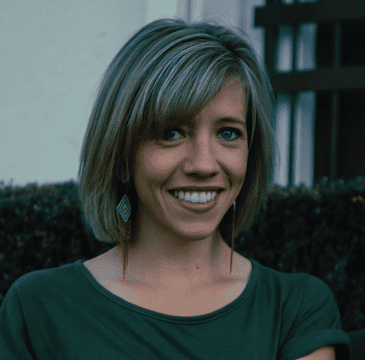
Elyse Guidas (Phoenix, 2019)
Executive Director, Activate Food Arizona
LinkedIn | Twitter
1. Can you please describe your work and how public policy impacts how you manage your organization?
Activate Food Arizona connects food to people. In both urban and rural communities throughout Arizona, we create innovative solutions to food system challenges and help communities develop food systems that work for them. Our flagship program is Farm Express, a mini fleet of mobile produce markets that provide affordable food options in neighborhoods with limited access to healthy food.
For nearly two years, we’ve been navigating our way through the many public policy changes (and crises) brought on by COVID-19. I think the pandemic has brought to light something many in the public health/food system sectors have known for a while: the food system is HIGHLY dependent on in-person, face-to-face interactions. While many emergency food systems, like food banks and food pantries, saw an influx of funding and support, smaller nonprofits and community food organizations were cut off from their communities. We struggled in the early days of the pandemic to shift our work to a model that maintains healthy food access for all while ensuring our staff and community members stay safe, but I’m incredibly proud of the ways we’ve come together to make sure the people who needed it most were connected to food resources in their area.
Our work is heavily impacted by public policy from all levels of government, from special use permits for our mobile markets on the municipal level all the way up to how SNAP benefits are distributed at the federal level. I think one of the things that’s helped us over the years is our ability to navigate these complex systems in order to stay relevant to the communities we serve. We can’t expect to maintain “business as usual” if the communities we serve have ever-changing needs, so it’s served us well to be flexible and expand our programs alongside the people who rely on them.
2. How has the Fellows Network been useful to you?
I’ve leaned on my friends on the Fellows Network more times than I can count. Every single sector has undergone significant changes in recent years, and it’s been empowering and comforting to be able to learn and grow from each other. Also, it’s given me an excuse to not only visit other parts of Arizona, but to really get to know the people and businesses that contribute to the vibrancy of our state. It feels like having an insider’s perspective on all things Arizona, which is a privilege I don’t take for granted.
3. What do you see as potential opportunities strengthening civic health in Arizona?
I’m fortunate (and biased) in that food offers a unique opportunity for Arizonans to come together over a myriad of social and political issues. The need for a healthy, affordable, and thriving food system is universal, and I have yet to meet someone who doesn’t believe everyone should have access to the foods they need for themselves and their families. More than that, working in food access work has allowed me to build strong relationships in diverse communities across the state, which has undoubtedly deepened my love for this place and all its inhabitants. Food brings people together in ways almost nothing else does, whether it’s sharing a meal with a neighbor or hosting a dinner at a community organizing event or connecting growers and farmers directly to public policy work. Our civic health greatly depends on our ability to sustain local, thriving food systems in big and small communities throughout Arizona.
If you missed a Fellows Spotlight, you can view them on the Arizona Center for Civic Leadership website now.